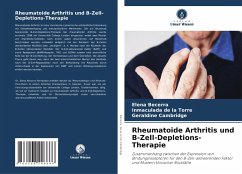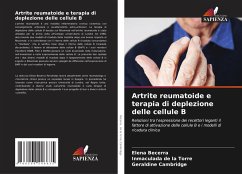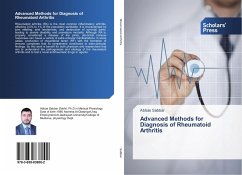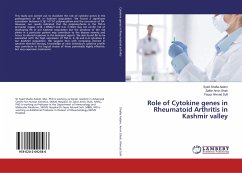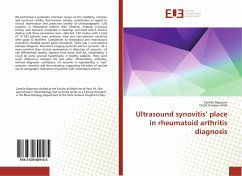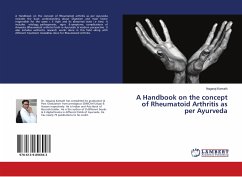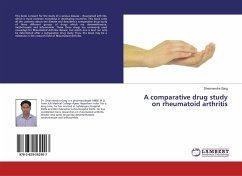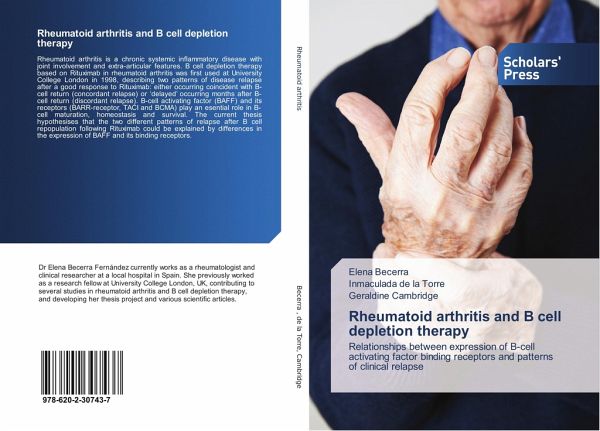
Rheumatoid arthritis and B cell depletion therapy
Relationships between expression of B-cell activating factor binding receptors and patterns of clinical relapse
Versandkostenfrei!
Versandfertig in 6-10 Tagen
53,99 €
inkl. MwSt.

PAYBACK Punkte
27 °P sammeln!
Rheumatoid arthritis is a chronic systemic inflammatory disease with joint involvement and extra-articular features. B cell depletion therapy based on Rituximab in rheumatoid arthritis was first used at University College London in 1998, describing two patterns of disease relapse after a good response to Rituximab: either occurring coincident with B-cell return (concordant relapse) or 'delayed' occurring months after B-cell return (discordant relapse). B-cell activating factor (BAFF) and its receptors (BARR-receptor, TACI and BCMA) play an esential role in B-cell maturation, homeostasis and su...
Rheumatoid arthritis is a chronic systemic inflammatory disease with joint involvement and extra-articular features. B cell depletion therapy based on Rituximab in rheumatoid arthritis was first used at University College London in 1998, describing two patterns of disease relapse after a good response to Rituximab: either occurring coincident with B-cell return (concordant relapse) or 'delayed' occurring months after B-cell return (discordant relapse). B-cell activating factor (BAFF) and its receptors (BARR-receptor, TACI and BCMA) play an esential role in B-cell maturation, homeostasis and survival. The current thesis hypothesises that the two different patterns of relapse after B cell repopulation following Rituximab could be explained by differences in the expression of BAFF and its binding receptors.



